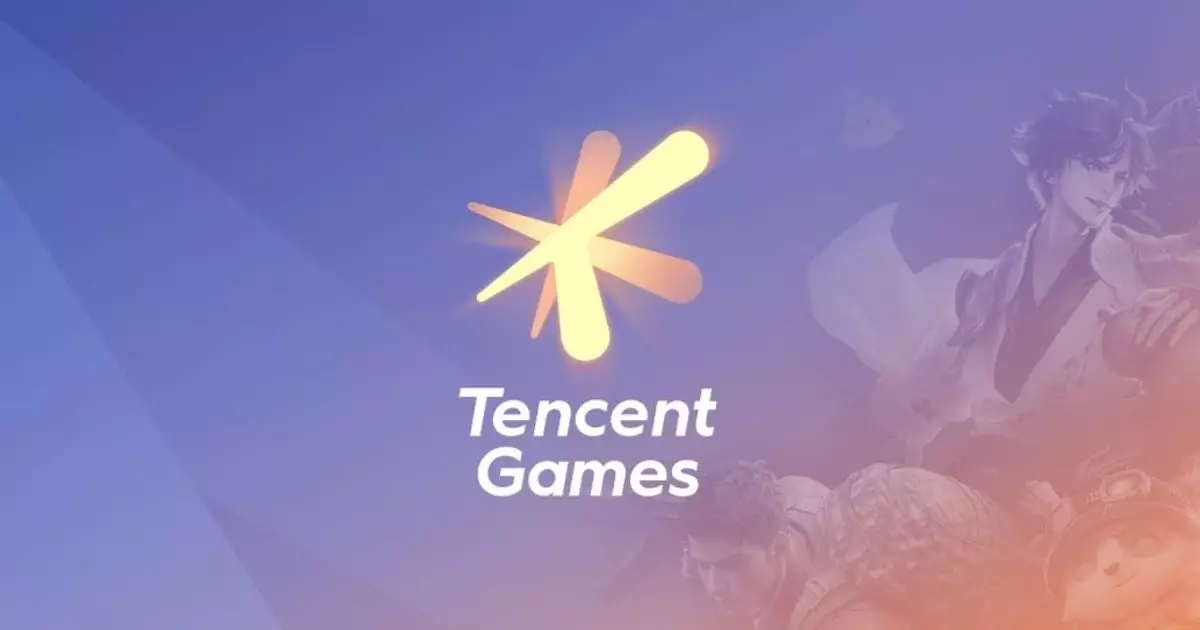In a contentious move that reflects ongoing geopolitical tensions, the US federal government classified Tencent, the Chinese video game conglomerate, as a member of its “Chinese Military Companies” list. This designation puts Tencent, which boasts ownership of renowned game developers such as Riot Games and Grinding Gear Games, in a precarious position. The implications of this classification extend beyond mere labels; they stir discussions about technology, regulation, and international relations in the digital age.
The US designation aims to confront concerns regarding the intertwining of Chinese civilian technology firms with military objectives. By categorizing companies like Tencent as military affiliates, the US government signals its strategy to scrutinize the complex web of relationships between China’s People’s Liberation Army and its corporate sector, particularly in high-tech industries. Critics argue this blurs the lines between commerce and national security, leading to potential collateral damage for civilian enterprises that pose little to no actual military threat.
In response to the classification, Tencent vehemently denied any military associations. A company spokesperson described the designation as a misunderstanding, asserting that Tencent’s business operations are strictly unrelated to military endeavors or any form of “military-civil fusion.” This statement reflects a broader perspective within the tech sector, where companies are increasingly wary of being entangled in geopolitical disputes.
Tencent’s leadership, including chairman Ma Huateng, announced their readiness to pursue legal action, should the designation remain unresolved. This willingness to engage in litigation underscores Tencent’s commitment to maintaining its corporate integrity and reputation on an international scale. The phrase “initiate a Reconsideration Process” indicates that Tencent plans to diplomatically appeal to the US Department of Defense for a remedy, highlighting the complexities involved in navigating regulatory challenges across borders.
Moreover, Tencent’s choice to go public with their grievances may set a precedent for other companies facing similar classifications. Notably, the drone manufacturing firm DJI and Lidar producer Hesai Technologies have also faced legal challenges regarding their military designations. This scenario reflects a growing trend where companies feel compelled to defend themselves against what they perceive as unfounded allegations, risking legal battles that can stretch resources and influence market confidence.
Impacts on the Gaming Industry and Beyond
The inclusion of Tencent on the military list raises critical questions about the broader gaming industry and its relationship with geopolitics. As one of the leading figures in the global gaming landscape, Tencent’s regulatory challenges could set a concerning precedent for other developers and publishers, particularly those with Chinese ties. Greater scrutiny may lead to a chilling effect on investment and collaboration opportunities in major gaming markets, as firms reconsider partnerships with a government that is increasingly characterized as adversarial.
Furthermore, this situation poses questions regarding consumer perception. Players and communities often have a rising interest in understanding the corporate governance of the entities behind their favorite games. Disclosures about military associations or influences could deter players, affecting sales and brand loyalty. As the narrative builds around national security, companies in the gaming sector may feel pressure to rethink their branding and messaging strategies to reassure consumers about their civic responsibilities.
As Tencent embarks on this legal path, the future landscape of global gaming and technology emerges as a focal point of attention. The outcome of Tencent’s contemplated legal actions may not only reshape its corporate future but also influence how other international companies maneuver governmental regulations across diverse political environments. It remains to be seen whether the tech sector can reclaim its narrative independent of geopolitical strife or if it will continue to be embroiled in the clarion calls of national security concerns. Ultimately, the interplay between gaming, technology, and global politics merits close scrutiny as the stakes rise in this heated arena of competition.

